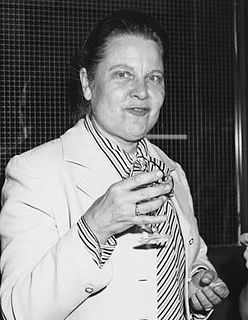A Quote by Johann Lamont
If I have learned one thing in life, it is never to take any man's own estimate of himself. He could very well be mistaken.
Related Quotes
Do you know the only value life has is what life puts upon itself? And it is of course overestimated, for it is of necessity prejudiced in its own favour. Take that man I had aloft. He held on as if he were a precious thing, a treasure beyond diamonds of rubies. To you? No. To me? Not at all. To himself? Yes. But I do not accept his estimate. He sadly overrates himself. There is plenty more life demanding to be born. Had he fallen and dripped his brains upon the deck like honey from the comb, there would have been no loss to the world. The supply is too large.
No man is so foolish but may give another good counsel sometimes; and no man is so wise, but may easily err, if he will take no others counsel but his own. But very few men are wise by their own counsel; or learned by their own teaching. For he that was only taught by himself had a fool to his master.
A penniless man who has no ties to bind him is master of himself at any rate, but a luckless wretch who is in love no longer belongs to himself, and may not take his own life. Love makes us almost sacred in our own eyes; it is the life of another that we revere within us; then and so begins for us the cruelest trouble of all.
Since no man ever can, or could, live by himself and for himself alone, the destinies of thousands of other people were bound to be affected, some remotely, but some very directly and near-at-hand, by my own choices and decisions and desires, as my own life would also be formed and modified according to theirs.
Whoever is wise is apt to suspect and be diffident of himself, and upon that account is willing to "hearken unto counsel"; whereas the foolish man, being in proportion to his folly full of himself, and swallowed up in conceit, will seldom take any counsel but his own, and for that very reason, because it is his own.
As a woman, for example, I live and work very much like a man. I take a lot of things from the man's world and I have to do that if I want to survive modern life. Conversely, men have to take things from the woman's world to survive. It's a very beautiful thing that you have to mold your own gender nowadays. But it's a very stressful thing for us.
All I wanted was to live a life where I could be me, and be okay with that. I had no need for material possessions, money or even close friends with me on my journey. I never understood people very well anyway, and they never seemed to understand me very well either. All I wanted was my art and the chance to be the creator of my own world, my own reality. I wanted the open road and new beginnings every day.
The man who is meek is not even sensitive about himself. He is not always watching himself and his own interests. He is not always on the defensive… To be truly meek means we no longer protect ourselves, because we see there is nothing worth defending… The man who is truly meek never pities himself, he is never sorry for himself. He never talks to himself and says, “You are having a hard time, how unkind these people are not to understand you.
In his scientific genius, man has wrought material miracles and has transformed his world. He has harnassed nature and has developed great civilizations. But he has never learned very well how to live with himself. The values he has created have been predominantly materialistic; his spiritual values have lagged far behind. He has demonstrated little spiritual genius and has made little progress toward the realization of human brotherhood. In the contemporary atomic age, this could prove man's fatal weakness.
A man seeks his own destiny and no other, said the judge. Wil or nill. Any man who could discover his own fate and elect therefore some opposite course could only come at last to that selfsame reckoning at the same appointed time, for each man's destiny is as large as the world he inhabits and contains within it all opposites as well. The desert upon which so many have been broken is vast and calls for largeness of heart but it is also ultimately empty. It is hard, it is barren. Its very nature is stone.

































